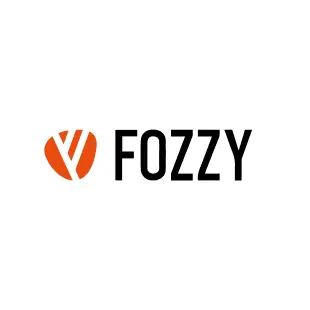Natural Language Processing First Steps: How Algorithms Understand Text NVIDIA Technical Blog
Compared to other discriminative models like logistic regression, Naive Bayes model it takes lesser time to train. This algorithm is perfect for use while working with multiple classes and text classification where the data is dynamic and changes frequently. Also based on NLP, MUM is multilingual, answers complex search queries with multimodal data, and processes information from different media formats. Data scientists need to teach NLP tools to look beyond definitions and word order, to understand context, word ambiguities, and other complex concepts connected to human language. So, unlike Word2Vec, which creates word embeddings using local context, GloVe focuses on global context to create word embeddings which gives it an edge over Word2Vec.
If you have any problems when using these tools, please let us know in the comments section below. MonkeyLearn is a user-friendly text analysis tool with a pre-trained keyword extractor that you can use to extract important phrases from your data using MonkeyLearn’s API. APIs are available in all major programming languages, and developers can extract keywords with just a few lines of code and obtain a JSON file with the extracted keywords. MonkeyLearn also has a free word cloud generator that works as a simple ‘keyword extractor,’ allowing you to construct tag clouds of your most important terms.
The basics of natural language processing
With more datasets generated over two years, BERT has become a better version of itself. The objective of the Next Sentence Prediction training program is to predict whether two given sentences have a logical connection or whether they are randomly related. So, what ultimately matters is providing the users with the information they are looking for and ensuring a seamless online experience. Let me break them down for you and explain how they work together to help search engine bots understand users better. It even enabled tech giants like Google to generate answers for even unseen search queries with better accuracy and relevancy. The process of obtaining the root word from the given word is known as stemming.
Which algorithm is most effective?
Quicksort is one of the most efficient sorting algorithms, and this makes of it one of the most used as well.
The DataRobot AI Platform is the only complete AI lifecycle platform that interoperates with your existing investments in data, applications and business processes, and can be deployed on-prem or in any cloud environment. DataRobot customers include 40% of the Fortune 50, 8 of top 10 US banks, 7 of the top 10 pharmaceutical companies, 7 of the top 10 telcos, 5 of top 10 global manufacturers. There are many applications for natural language processing, including business applications. This post discusses everything you need to know about NLP—whether you’re a developer, a business, or a complete beginner—and how to get started today. Sometimes, instead of tagging people or place names, AI community members are asked to tag which words are nouns, verbs, adverbs, etc. These data annotation tasks can quickly become complicated, as not has the necessary knowledge to distinguish the parts of speech.
Assessing text data quality
We believe that our recommendations, alongside an existing reporting standard, will increase the reproducibility and reusability of future studies and NLP algorithms in medicine. Two hundred fifty six studies reported on the development of NLP algorithms for mapping free text to ontology concepts. Twenty-two studies did not perform a validation on unseen data and 68 studies did not perform external validation.
The use of automated labeling tools is growing, but most companies use a blend of humans and auto-labeling tools to annotate documents for machine learning. Whether you incorporate manual or automated annotations or both, you still need a high level of accuracy. The image that follows illustrates the process of transforming raw data into a high-quality training dataset. As more data enters the pipeline, the model labels what it can, and the rest goes to human labelers—also known as humans in the loop, or HITL—who label the data and feed it back into the model.
Genetic Algorithms for Natural Language Processing
Words Cloud is a unique metadialog.com that involves techniques for data visualization. In this algorithm, the important words are highlighted, and then they are displayed in a table. Bringing together a diverse AI and ethics workforce plays a critical role in the development of AI technologies that are not harmful to society. Among many other benefits, a diverse workforce representing as many social groups as possible may anticipate, detect, and handle the biases of AI technologies before they are deployed on society. Further, a diverse set of experts can offer ways to improve the under-representation of minority groups in datasets and contribute to value sensitive design of AI technologies through their lived experiences. Use your own knowledge or invite domain experts to correctly identify how much data is needed to capture the complexity of the task.
- We are a passionate, inclusive group of students and faculty, postdocs and research engineers, who work together on algorithms that allow computers to process, generate, and understand human languages.
- The next important aspect in this discussion would refer to the actual agenda, i.e., tokenization algorithm.
- The essential words in the document are printed in larger letters, whereas the least important words are shown in small fonts.
- NLP is a field of linguistics and machine learning focused on understanding everything related to human language.
- Pentalog Connect is your free pass to a large community of top engineers who excel in developing outstanding and impactful digital products.
- Though not without its challenges, NLP is expected to continue to be an important part of both industry and everyday life.
To do this, they needed to introduce innovative AI algorithms and completely redesign the user journey. The most challenging task was to determine the best educational approaches and translate them into an engaging user experience through NLP solutions that are easily accessible on the go for learners’ convenience. Specifically, this model was trained on real pictures of single words taken in naturalistic settings (e.g., ad, banner). It removes comprehensive information from the text when used in combination with sentiment analysis.
An investigation across 45 languages and 12 language families reveals a universal language network
The following are the procedures involved in extracting keywords from a text using spacy. The emergence of powerful and accessible libraries such as Tensorflow, Torch, and Deeplearning4j has also opened development to users beyond academia and research departments of large technology companies. In a testament to its growing ubiquity, companies like Huawei and Apple are now including dedicated, deep learning-optimized processors in their newest devices to power deep learning applications.
This not only improves the efficiency of work done by humans but also helps in interacting with the machine. Artificial neural networks are a type of deep learning algorithm used in NLP. These networks are designed to mimic the behavior of the human brain and are used for complex tasks such as machine translation and sentiment analysis. The ability of these networks to capture complex patterns makes them effective for processing large text data sets.
An Overview of Tokenization Algorithms in NLP
The order of prediction is not necessarily left to right and can be right to left. The original order of words is not changed but a prediction can be random. The conceptual difference between BERT and XLNET can be seen from the following diagram. GPT is a bidirectional model and word embedding is produced by training on information flow from left to right.

This technique reduces the computational cost of training the model because of a simpler least square cost or error function that further results in different and improved word embeddings. It leverages local context window methods like the skip-gram model of Mikolov and Global Matrix factorization methods for generating low dimensional word representations. Now that you have a basic understanding of the topic, let us start from scratch by introducing you to word embeddings, its techniques, and applications. Character level tokenization came into existence in 2015 by splitting a text into characters rather than splitting it into words.
Natural language processing courses
We introduce a new dataset of conversational speech representing English from India, Nigeria, and the United States. Recent work has focused on incorporating multiple sources of knowledge and information to aid with analysis of text, as well as applying frame semantics at the noun phrase, sentence, and document level. In this study, we will systematically review the current state of the development and evaluation of NLP algorithms that map clinical text onto ontology concepts, in order to quantify the heterogeneity of methodologies used. We will propose a structured list of recommendations, which is harmonized from existing standards and based on the outcomes of the review, to support the systematic evaluation of the algorithms in future studies. Natural Language Processing (NLP) can be used to (semi-)automatically process free text.
- For sure, the quality of content and the depth in which the topic is covered matters a great deal, but that doesn’t mean that the internal and external links are no more important.
- We introduce a new dataset of conversational speech representing English from India, Nigeria, and the United States.
- A key benefit of subject modeling is that it is a method that is not supervised.
- A tooling flexible approach ensures that you get the best quality outputs.
- There is a tremendous amount of information stored in free text files, such as patients’ medical records.
- In NLP, syntax and semantic analysis are key to understanding the grammatical structure of a text and identifying how words relate to each other in a given context.
A word has one or more parts of speech based on the context in which it is used. NER is a subfield of Information Extraction that deals with locating and classifying named entities into predefined categories like person names, organization, location, event, date, etc. from an unstructured document. NER is to an extent similar to Keyword Extraction except for the fact that the extracted keywords are put into already defined categories. We will use the famous text classification dataset 20NewsGroups to understand the most common NLP techniques and implement them in Python using libraries like Spacy, TextBlob, NLTK, Gensim. The original training dataset will have many rows so that the predictions will be accurate. By training this data with a Naive Bayes classifier, you can automatically classify whether a newly fed input sentence is a question or statement by determining which class has a greater probability for the new sentence.
Word embeddings
Finally, for text classification, we use different variants of BERT, such as BERT-Base, BERT-Large, and other pre-trained models that have proven to be effective in text classification in different fields. A more complex algorithm may offer higher accuracy, but may be more difficult to understand and adjust. In contrast, a simpler algorithm may be easier to understand and adjust, but may offer lower accuracy. Therefore, it is important to find a balance between accuracy and complexity. Training time is an important factor to consider when choosing an NLP algorithm, especially when fast results are needed.
TF-IDF stands for Term frequency and inverse document frequency and is one of the most popular and effective Natural Language Processing techniques. This technique allows you to estimate the importance of the term for the term (words) relative to all other terms in a text. Representing the text in the form of vector – “bag of words”, means that we have some unique words (n_features) in the set of words (corpus). Natural Language Processing usually signifies the processing of text or text-based information (audio, video). An important step in this process is to transform different words and word forms into one speech form. Usually, in this case, we use various metrics showing the difference between words.
Which language is best for NLP?
Although languages such as Java and R are used for natural language processing, Python is favored, thanks to its numerous libraries, simple syntax, and its ability to easily integrate with other programming languages. Developers eager to explore NLP would do well to do so with Python as it reduces the learning curve.
It can approximate meaning and represent a word in a lower dimensional space. These can be trained much faster than the hand-built models that use graph embeddings like WordNet. Most notably, Google’s AlphaGo was able to defeat human players in a game of Go, a game whose mind-boggling complexity was once deemed a near-insurmountable barrier to computers in its competition against human players. Flow Machines project by Sony has developed a neural network that can compose music in the style of famous musicians of the past.
Best AI Tools for Twitter 2023 – MarkTechPost
Best AI Tools for Twitter 2023.
Posted: Sun, 11 Jun 2023 08:00:00 GMT [source]
Most higher-level NLP applications involve aspects that emulate intelligent behaviour and apparent comprehension of natural language. More broadly speaking, the technical operationalization of increasingly advanced aspects of cognitive behaviour represents one of the developmental trajectories of NLP (see trends among CoNLL shared tasks above). Keyword extraction is another popular NLP algorithm that helps in the extraction of a large number of targeted words and phrases from a huge set of text-based data. Moreover, statistical algorithms can detect whether two sentences in a paragraph are similar in meaning and which one to use.
- A vocabulary-based hash function has certain advantages and disadvantages.
- The search engine giant recommends such sites to focus on improving content quality.
- In machine learning, data labeling refers to the process of identifying raw data, such as visual, audio, or written content and adding metadata to it.
- Table 4 lists the included publications with their evaluation methodologies.
- In social media sentiment analysis, brands track conversations online to understand what customers are saying, and glean insight into user behavior.
- This representation must contain not only the word’s meaning, but also its context and semantic connections to other words.
Which of the following is the most common algorithm for NLP?
Sentiment analysis is the most often used NLP technique.

